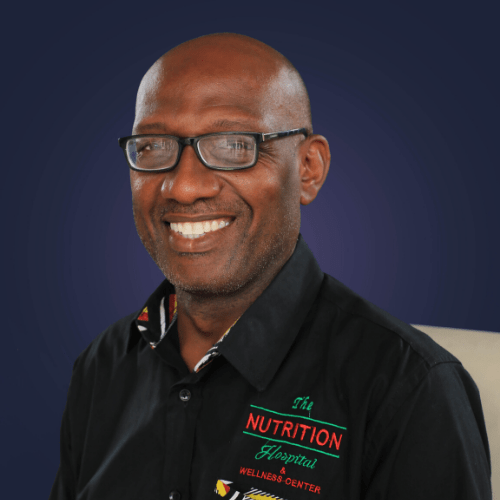
About 90 per cent of my clients at Carib Health Wellness Centre recall stories of their grandparents and even some of their great-grandparents whom they met while they were still alive. These elders were aged yet active: strong, walking long distances, farming, attending meetings, social gatherings, and even going to the market.
Most clients remember them as being intellectually engaged, while others have an impressive knowledge of herbs and preparing herbal mixes. Many recall their grandparents talking to the younger ones and even playing games with them. Numerous clients who come to our wellness centre share these stories, and every time I am in awe. I am impressed, and I keep asking, what is going on today?
These clients often share that their grandparents or great-grandparents lived to be 90, 100, or 110, and a few even surpassed 120. Most of them lived consistently between 90 and 120 years. Some say they were so old that they didn’t know their exact birth date, but they were definitely over 100.
So, as you read this, ponder your own ancestry. Reflect on your genealogy, your parents, your grandparents, your great-grandparents, and your great-great-grandparents, if you’re fortunate enough to have met them. Please, share and document your interactions and memories for posterity.
My ancestral story
I was privileged to meet both my grandmothers and my maternal grandfather, but the most remarkable was meeting and knowing my great-grandmother, my father’s maternal grandmother. As a young boy who travelled to the village and encountered this old lady, I remember her being so active. Every morning, she would get up early, likely the first person to wake up in the compound.
By the time I woke up, she would be sweeping the front yard, either by herself or with others. She would not let anyone take the broom from her. She only used the African broom. To use this broom, you would bend over to sweep. I don’t recall her complaining of back pain or taking paracetamol.
After sweeping, you’d see her pick up firewood to start a fire for cooking. As others joined her, she would eventually go indoors, clean up, take a bath, and come back out to enjoy breakfast. She would be dressed, often wearing a very simple buba and wrapper. She would pack her basket with items and announce that she was off to the market.
In the marketplace, she had her peers and her mates, people who were equally as old as she was, with whom she laughed and shared many stories. I don’t recall her taking any anti-malaria medicine, cough medicine, headache medicine, or back pain tablets. She drank different local herbal preparations and ate locally prepared meals and fresh leaves. In the evenings, she would sit with us and play the African game “ayo” or Ludo. She loved interacting with the great-grandchildren and the grandchildren and many others who were in the compound.
By the time I first encountered her, she was about 110 years of age and lived for many more years. We estimated that when she finally passed on, she was likely over 120. She rarely ate any of the food we brought from Lagos, whether it was canned goods or boxed cereals. She was aged and in good health.
Lessons from Dr Price’s book
Dr Weston Price, a dentist, and his wife, a dental researcher, travelled the world seeking healthy people. He travelled to over 14 countries on all continents. Early in his book, he is very clear that to find healthy people, you had to find those who had yet to be influenced by Western culture and nutrition!
Here is an excerpt from the book: “Dr. Price travelled to hundreds of cities in a total of 14 different countries in his search to find healthy people. He investigated some of the most remote areas of the world. He observed perfect dental arches, minimal tooth decay, and high immunity to tuberculosis in those groups of people who ate their indigenous foods. He found that when these people were introduced to modernised foods, such as white flour, white sugar, refined vegetable oils, and canned goods, signs of degeneration quickly became quite evident… dental caries, deformed jaw structures, crooked teeth, arthritis, and a low immunity to tuberculosis became rampant amongst them.”
Price documented this ancestral wisdom, including hundreds of photos, in his book Nutrition and Physical Degeneration. On page one of his book, in the introduction, he writes: “A critical examination of these groups revealed high immunity to many of our serious afflictions so long as they were sufficiently isolated from our modern civilisation and living in accordance with nutritional programmes which were directed by the accumulated wisdom of the group.”
He investigated primitive racial stocks, including isolated and modernised groups. These groups included the Swiss of Switzerland, the Gaelics in the Outer and Inner Hebrides, the Eskimos of Alaska, the Indians of the Far North, West, and Central Canada, the Indians of the Western United States and Florida, the Melanesians and Polynesians on eight archipelagos of the South Pacific, tribes in Eastern and Central Africa, the Aborigines of Australia, Malay tribes on islands north of Australia, the Maori of New Zealand, the ancient civilisations and their descendants in Peru, both along the coast and in the Sierras, and in the Amazon Basin. Where available, the modernised whites in these communities were also studied.
Though his primary focus was to evaluate tooth decay, it became rapidly apparent that dental health was directly related to other degenerative events in the body. Here is another quotation from the book: “…the chain of disturbances developed in these various primitive racial stocks, starting even in the first generation after the adoption of the modernised diet and rapidly increasing in severity, with expressions quite constantly like the characteristic degenerative processes.”
Dr Price makes a very interesting and powerful statement: “Much of what we have interpreted as being due to heredity is really the result of intercepted heredity.”









